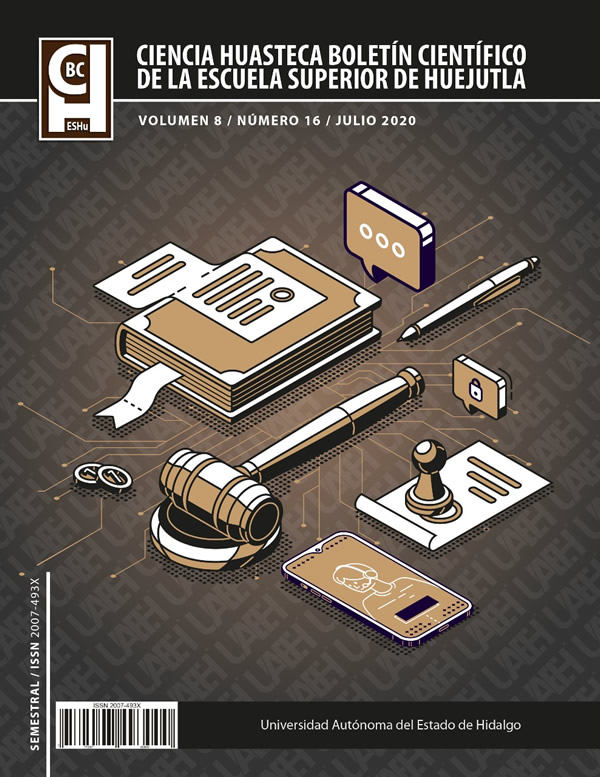The bioethics of the CRISPR-Cas9 system as genetic therapy for globally-important illnesses
Abstract
Genetics, the field of study of hereditable material that dictates individuals´ phenotype, has greatly evolved since 1953, the year in which this material´s basic structure was published. The advances have been of such magnitude that today we can easily localize human genes, access their entire sequence and even pinpoint genes involved in human disease development. Cutting edge techniques can be applied to modify and improve our food supply, be they of vegetable or animal origin. Genetic engineering techniques have been applied with the objective of solving global-scale social problematics, including the high index of morbidity and mortality without having factored in social factors, public health problematics, and the ethical implications of the techniques. Notwithstanding the recognized importance of ethics as an integral necessity in the medical practice, strict application of bioethics, however, has also complicated scientific innovation, due to the series of norms and regulations. In this essay we will revise the bioethics behind the CRISPR-Cas9 system as a genetic therapy tool for globally-important illnesses.
Downloads
References
Watson JD, Crick FHC. Molecular structure of nucleic acids: A structure for deoxyribose nucleic acid. Nature. 1953;171:737-738. doi:10.1038/248765a0
Ponomarenko EA, Poverennaya E V., Ilgisonis E V., et al. The Size of the Human Proteome: The Width and Depth. Int J Anal Chem. 2016;2016. doi:10.1155/2016/7436849
The Human Genome Project | NHGRI. https://www.genome.gov/human-genome-project. Accessed March 24, 2020.
Palacios-Yabar M. CRISPR / Cas9 : Edición Genética vs . Bioética. 2019;2(1):5-18.
Athanasopoulos T, Munye MM, Yáñez-Muñoz RJ. Nonintegrating Gene Therapy Vectors. Hematol Oncol Clin North Am. 2017;31(5):753-770. doi:10.1016/j.hoc.2017.06.007
Valenzuela CY. Ética científica de la terapia génica de individuos. Urgencia de la cirugía génica del ADN. Rev Med Chil. 2003;131(10):1208-1214. doi:10.4067/s0034-98872003001000018
Hille F, Richter H, Wong SP, Bratovič M, Ressel S, Charpentier E. The Biology of CRISPR-Cas: Backward and Forward. Cell. 2018;172(6):1239-1259. doi:10.1016/j.cell.2017.11.032
Giono LE. CRISPR/CAS9 Y LA TERAPIA GÉNICA. 2017;77:405-409. www.medicinabuenosaires.com. Accessed March 24, 2020.
Foltz LP, Howden SE, Thomson JA, Clegg DO. Functional assessment of patient-derived retinal pigment epithelial cells edited by CRISPR/Cas9. Int J Mol Sci. 2018;19(12). doi:10.3390/ijms19124127
Yumlu S, Bashir S, Stumm J, Kühn R. Efficient Gene Editing of Human Induced Pluripotent Stem Cells Using CRISPR/Cas9. In: Methods in Molecular Biology. Vol 1961. Humana Press Inc.; 2019:137-151. doi:10.1007/978-1-4939-9170-9_10
Callaway E. Errors in CRISPR-baby study. Nature. 2019;574:307.
Trapani I, Auricchio A. Seeing the Light after 25 Years of Retinal Gene Therapy. Trends Mol Med. 2018;24(8):669-681. doi:10.1016/j.molmed.2018.06.006
Roosevelt FD. Franklin D. Roosevelt’s last message to the American people. Library of Congress. Presented at the: 1945.
OMS | Mortalidad. https://www.who.int/topics/mortality/es/. Accessed March 25, 2020.
Soto-Estrada G, Moreno-Altamirano L, Pahua Díaz D, Soto-Estrada G, Moreno-Altamirano L, Pahua Díaz D. Epidemiological overview of Mexico’s leading causes of morbidity and mortality. Rev la Fac Med. 2016;59(6):8-22. http://www.scielo.org.mx/scielo.php?script=sci_arttext&pid=S0026-17422016000600008.
Rappaport SM. Genetic factors are not the major causes of chronic diseases. PLoS One. 2016;11(4):1-9. doi:10.1371/journal.pone.0154387
Silverman EK. Applying functional genomics to chronic obstructive pulmonary disease. Ann Am Thorac Soc. 2018;15(4):S239-S242. doi:10.1513/AnnalsATS.201808-530MG
Rathmann W, Scheidt-Nave C, Roden M, Herder C. Type 2 Diabetes: Prevalence and Relevance of Genetic and Acquired Factors for Its Prediction. Dtsch Arztebl Int. 2013;110(19):331-337. doi:10.3238/arztebl.2013.0331
Moore, Keith; Persaud, T; Torchia M. Embriología Médica. España: Elsevier; 2013.
Greely HT. Human Germline Genome Editing: An Assessment. Cris J. 2019;2(5):253-265. doi:10.1089/crispr.2019.0038
https://clinicaltrials.gov/ct2/results?pg=1&load=cart&id=NCT03399448. https://clinicaltrials.gov/ct2/results?pg=1&load=cart&id=NCT03399448. Accessed March 25, 2020.
Moses C, Kaur P. Applications of CRISPR systems in respiratory health: Entering a new ‘red pen’ era in genome editing. Respirology. 2019;24(7):628-637. doi:10.1111/resp.13527
German DM, Mitalipov S, Mishra A, Kaul S. Therapeutic Genome Editing in Cardiovascular Diseases. JACC Basic to Transl Sci. 2019;4(1):122-131. doi:10.1016/j.jacbts.2018.11.004
Balboa D, Prasad RB, Groop L, Otonkoski T. Genome editing of human pancreatic beta cell models: problems, possibilities and outlook. Diabetologia. 2019;62(8):1329-1336. doi:10.1007/s00125-019-4908-z
Lee H, Kim JS. Unexpected CRISPR on-target effects. Nat Biotechnol. 2018;36(8):9-10. doi:10.1038/nbt.4207
Fu Y, Foden JA, Khayter C, et al. High-frequency off-target mutagenesis induced by CRISPR-Cas nucleases in human cells. Nat Biotechnol. 2013;31(9):822-826. doi:10.1038/nbt.2623
Riveros Maidana R, Méndez Ferreira A, Benítez Candia N, Benítez Pereira E. Sistema CRISPR / Cas : Edición genómica de precisión. Memorias del Inst Investig en Ciencias la Salud. 2020;18(1):97-107.
Pérez-López J. Terapia génica en el tratamiento de los errores congénitos del metabolismo. Med Clin (Barc). 2014;142(12):549-553. doi:10.1016/j.medcli.2013.05.030
Bergel SD. Los Derechos Humanos: Entre La Bioética Y La Genética. Acta Bioeth. 2002;8(2):315-331. doi:10.4067/s1726-569x2002000200011
Fernandez Palacios P. EDICIÓN DE GENES MEDIANTE CRISPR-Cas9 : MÁS QUE CORTAR Y PEGAR. 2019.
Ivanov V. Good Gene/Bad Gene. (Boulyjenkov, V; Berg, K; Christen Y, ed.). Heidelberg; 2000. doi:https://doi.org/10.1007/978-3-642-56947-0_14
Haldane JBS. The Part Played by Recurrent Mutation in Evolution. Am Nat. 1933;67:5-19. doi:10.2307/4609393
Verlarde Nañez M del P. Evolucion del papel de la Genetica en Medicina: del estudio de la herencia a la genomica personalizada. 2019.
McConnell SC. An Exclusive Interview with CRISPR. AMA J Ethics. 2019;21(1):1079-1088.
Brokowski C, Adli M. CRISPR Ethics: Moral Considerations for Applications of a Powerful Tool. J Mol Biol. 2019;431(1):88-101. doi:10.1016/j.jmb.2018.05.044
Camara de Diputados S. Reglamento de La Ley General de Salud En Materia de Investigaciones Para La Salud.; 2014. http://www.cofepris.gob.mx/MJ/Paginas/Reglamentos.aspx.
López-Pacheco MC, Pimentel-Hernández C, Rivas-Mirelles E, Arredondo-Garcia JL. Normatividad que rige la investigación clinica en seres humanos y requisitos que debe cumplir un centro de investigación para participar en un estudio clinico en México. Acta Pediatr Mex. 2016;37(3):175-182. doi:10.18233/apm37no3pp175-182
Declaración de Helsinki de la AMM – Principios éticos para las investigaciones médicas en seres humanos – WMA – The World Medical Association. https://www.wma.net/es/policies-post/declaracion-de-helsinki-de-la-amm-principios-eticos-para-las-investigaciones-medicas-en-seres-humanos/. Accessed March 26, 2020.
Lecuona I De, Casado M, Marfany G, Baroni ML, Escarrabill M. Gene editing in humans: Towards a global and inclusive debate for responsible research. Yale J Biol Med. 2017;90(4):673-681.
Roland D. At $ 2 Million , New Novartis Drug Is Priciest Ever. The Wall Street Journal. 2019:1-5.









